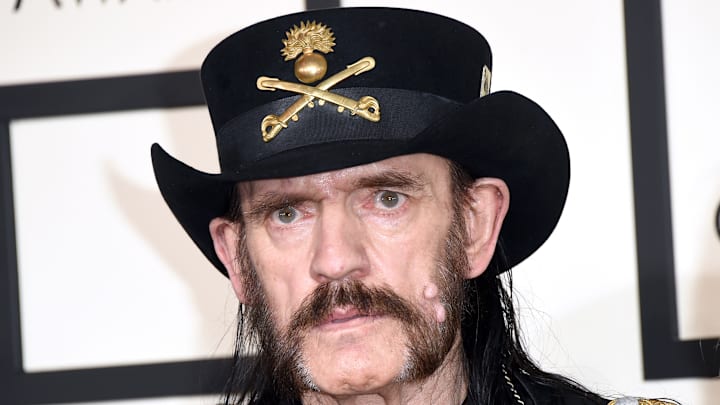Unfortunately, in 2015, the world lost a musical great. Lemmy Kilmister of Motörhead died. We are left with the memories of the great music he helped give us, but also a bit of the unexpected. Lemmy was great at giving interviews, and during those talks, he became somewhat of a philosopher.
In a new issue of Classic Rock, an unpublished interview with Lemmy has surfaced, and among the many things he discusses are his views on gods and religion. One might expect him to say, "I'm not a believer." But Lemmy, being Lemmy, brought us much-needed depth to his reasoning.
Of course, one has a right to disagree with him, just as he had a right to speak his views, especially when he was asked specifically about them. Motörhead was one of the rare bands whose musicians were as interesting outside the group as inside. But the music they collectively produced was elite.
Lemmy of Motörhead delivers us posthumous truth
As far as gods and religion, Lemmy brought up how people sometimes find deities in unexpected places, and follow blindly when maybe they shouldn't. The issue is that one's beliefs can at times lead to the oppression of others, no matter which side of a specific issue one stands on.
Lemmy said, "I dislike religion quite intensely, actually. It’s been the cause of all the grief in the world ever since they discovered the first stone to worship. It didn’t start with Jesus, it started before him. Every religion… I mean, Nazism and Communism are religions too, make no mistake, with Hitler and Stalin as God, right? It’s the same thing."
The truth of things lies between what Lemmy speaks. Instead of following someone blindly, even if we agree with most of what they say or do, we should still retain our right to think freely and as an individual.
This includes every aspect of our lives, from politics to art. If the alpha of our friend group loves Taylor Swift, we shouldn't all love Swift simply because they do (though Swift is worthy of being liked). We should feel free to say we like Bauhaus better than Swift, and that's OK. We can still like our friend, but we can also still love ourselves.
